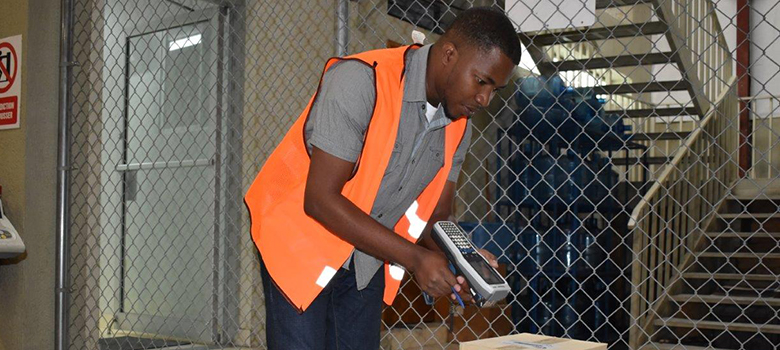
When you take a medicine, you trust it will be safe and effective, but that’s not always the case. In low- and middle-income countries, one in ten medical products is poor quality and can even harm patient’s health, according to the World Health Organization. The use of global standards can help prevent this and lead to saved money through more efficient supply chains.
To realize that potential, the USAID Global Health Supply Chain Program–Procurement and Supply Management (GHSC-PSM) project is championing the use of global standards to track and trace every health commodity through the supply chain from procurement to the patient. The project has quickly emerged as an innovator in promoting global standards by adapting commercial technology for public health use and engaging diverse stakeholders.
Two such technologies GHSC-PSM is adapting are barcodes and the Global Data Synchronization Network (GDSN).
Global standards for product identification, data capture, and data sharing — including barcodes — are developed and maintained by GS1, an international non-profit organization. GS1 technology captures key data points related to each health product, allowing donors and governments to track them throughout the supply chain. GHSC-PSM is applying technology commonly used by major retailers and shippers, such as barcodes, to public health supply chains.
GHSC-PSM also is using and enhancing the GDSN for master data exchange. The current lack of standardized master data and visibility into product movement can lead to waste, theft, counterfeit products, and inefficient recalls. The GDSN provides a single connection through which suppliers share product-related data. Network participants — such as supply chain managers, regulatory authorities, or healthcare workers — can then receive that data in near-real time allowing more efficient and informed decision making.
GHSC-PSM worked with GS1 and the GDSN community to enhance the GDSN for global health use. These enhancements include a set of attributes to capture market authorization data, which enables the network to automate product registration information across countries directly from suppliers. The project also introduced a new “Development Assistance” target market that allows suppliers to send donors health product-related information. For this work, the project received an 1nnovation Award given by 1WorldSync, a leading network content provider that annually recognizes entities that show leadership and major impact in their industries.
Another key aspect of GHSC-PSM’s strategy for global standards is engaging diverse stakeholders. GHSC-PSM is working with both governments and pharmaceutical manufacturers to encourage the use of GS1 global standards in health supply chains. In January 2018, GHSC-PSM issued a phased requirement for suppliers to begin using GS1-compliant barcodes.
In May 2018, a GS1 healthcare conference was held in Addis Ababa, Ethiopia where GHSC-PSM had a strong attendance. Staff from 16 different country offices networked with attendees from GS1 member organizations and several national regulatory authorities to affirm a common commitment to global standards. At the conference, GHSC-PSM staff presented a poster on the GDSN and held a workshop with USAID on how to implement the conference's messages into the project's work.
In the coming year, GHSC-PSM will continue to leverage technology and engage stakeholders around the vision of a secure supply chain that uses fewer resources to serve more patients with the high-quality medicine they need.